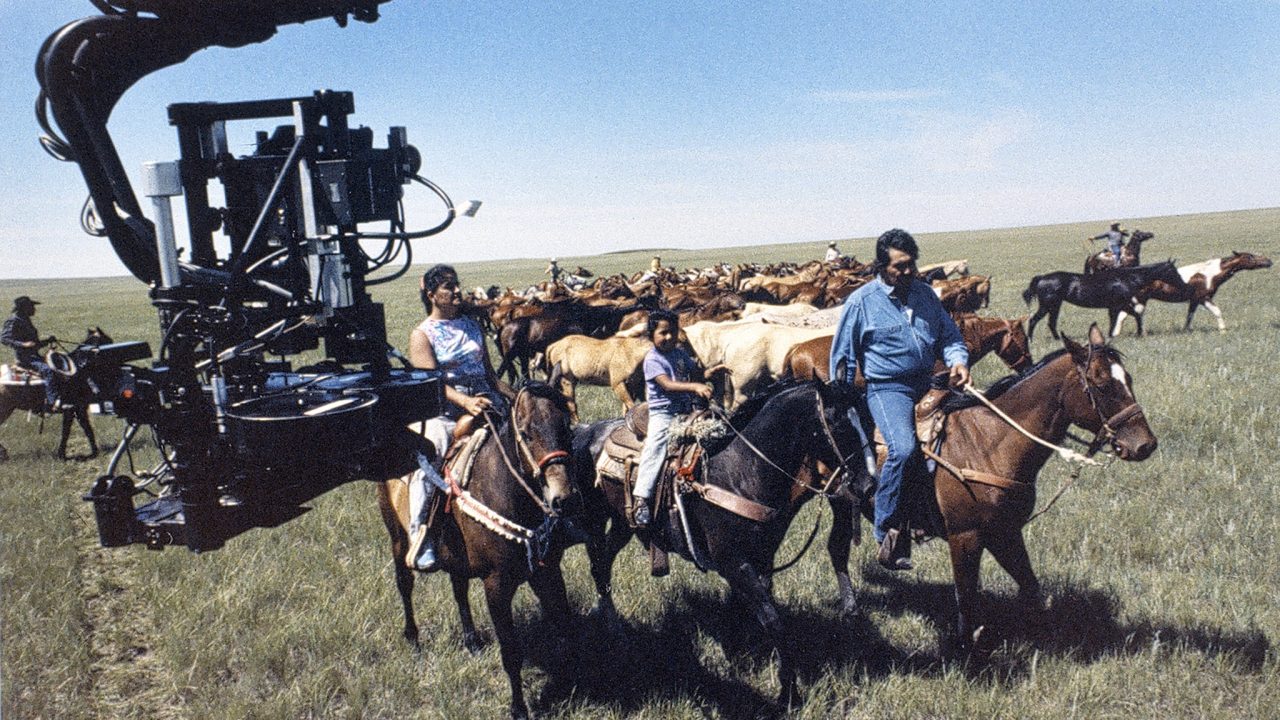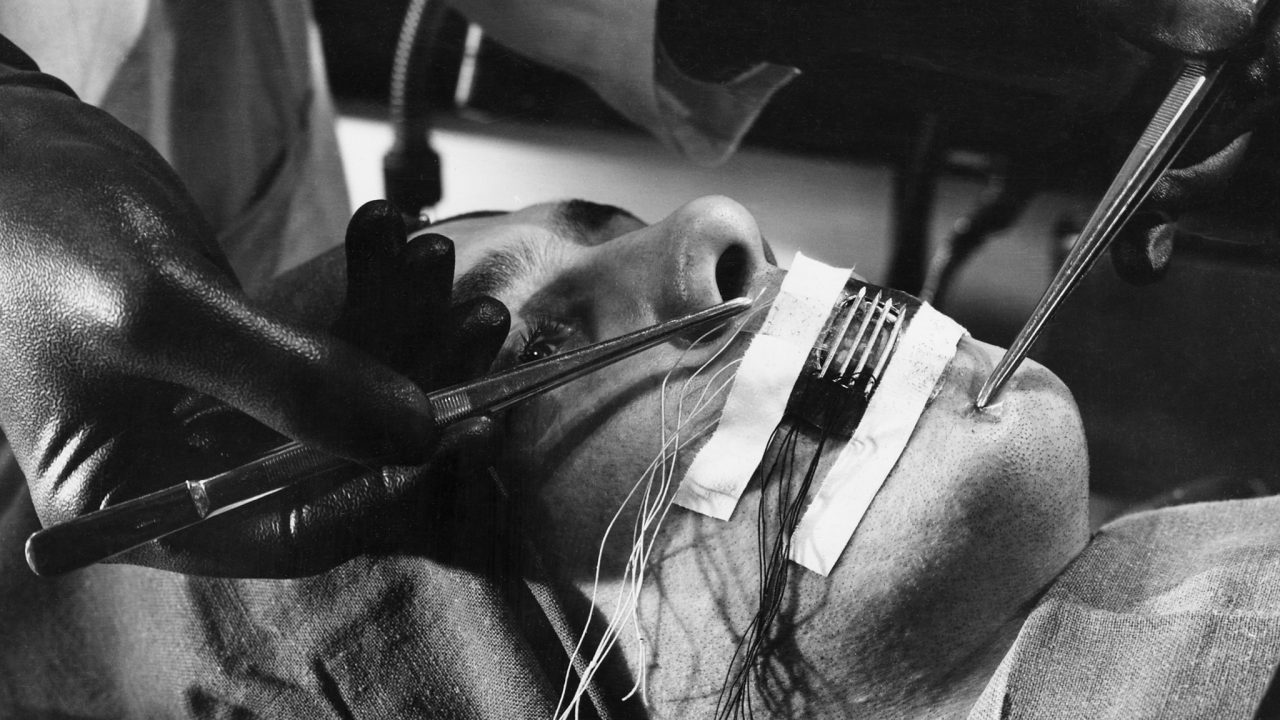
Balkan Powder Keg: Controversy, Censorship and the Missing Film
Balkan Powder Keg: Controversy, Censorship and the Missing Film
During World War 2 the National Film Board was actively involved in producing films that would provide a uniquely Canadian view of the war effort at home and on the fighting fronts. Two theatrical newsreel series were produced during this time: Canada Carries On, which focused on Canadian stories, and The World in Action, which had a more international outlook.
The World in Action was distributed by United Artists (UA) throughout Canada, in some 6,000 cinemas in the US and a further 1,000 in the UK, as well as in other Allied countries. These films were screened monthly, ran between 10 and 20 minutes in length and were produced for the Wartime Information Board of Canada (WIB). NFB producers worked closely with different levels of government to create these newsreels. Once each episode was completed, it would be screened for various armed forces personnel, WIB directors as well as Department of External Affairs staff to make sure the message was appropriate. Most of these films were accepted as is and released in theatres subsequently. Occasionally there were problems with a film, which resulted in changes being made to it before its release.
What happened with the film Balkan Powder Keg went beyond minor changes to its content. The film was withdrawn from circulation, re-released, withdrawn again and finally heavily censored. It was to be the January 1945 episode of The World in Action, and it dealt with the war as it affected the Balkan countries, and how Great Britain and the USSR were involved in the region.
It was completed in December 1944 and viewed by the usual people before general release. External Affairs personnel had mixed reactions upon seeing it. Some felt it was a strong film, while others felt it went too far in its criticism of Great Britain’s foreign policy in the Balkan region. Prime Minister Mackenzie King was made aware of the film and viewed it. His relationship with British Prime Minister Winston Churchill was strained at the time because of some disagreements on where Canadian troops should be deployed. It was not a good time to add fuel to the fire, so King discussed the situation with his War Cabinet. The film had only been released to 3 theatres in Canada at that time (all in Ontario). The War Cabinet decided that the film should be withdrawn immediately to avoid any further deterioration of Canadian-British relations.
The news hit the NFB hard. It was the first time that the government had withdrawn an NFB film outright. The NFB’s film commissioner, John Grierson, had prided himself on his excellent working relationship with the various government officials and Prime Minister King. Stuart Legg, who had directed and produced the film, was outraged. He could not believe that the government had acted in this way. He was also stunned to hear that the War Cabinet had lambasted Grierson, calling into question his judgement in allowing the film to be anti-British. Legg believed the British people would have greatly benefited from knowing what their government was doing in the region.
The press soon found out about the withdrawal and the story became public. Czech and Yugoslav groups that had seen the film at special screenings clamoured for the government to allow its distribution to resume. The United Nations Relief and Rehabilitation Administration (UNRRA) had also seen the film and requested a copy to use in its work. The discussions continued for some time but the film did not go back into circulation until much later in the year. It should be pointed out that our archives are sketchy as to where and when this happened. What is known is that, almost immediately, a Member of Parliament brought the matter up in the House of Commons and blasted the NFB for producing such an anti-British film. The government wasted no time and withdrew the film again. They then asked the NFB to produce a new version that would be acceptable to all and that UNRRA could use.
The NFB cut the film down to 10 minutes and removed all the controversial material. By this time the war had ended and the film had to change its focus. The new version (approved by the government) was titled Spotlight on the Balkans and released by UA in December 1945. It was the last World in Action film to be distributed by UA. With the war’s end, they decided to discontinue their involvement in the series, which was distributed by other companies for a few more months before being cancelled.
So what exactly did Balkan Powder Keg say that was so controversial? Unfortunately, the film no longer exists in any format whatsoever, so that is a hard question to answer. Before anyone starts any conspiracy theories, let me point out that a fire in 1967 at our warehouse in Kirkland (a suburb of Montreal) destroyed over 60,000 film cans. We lost a great deal of important material that day, and I’m sure that prints of the film were among the destroyed material.
But all is not lost: Our archives do include a written transcript of the film. I read it carefully and the only thing I found that could be considered anti-British is a section concerning Greece, which subtly implies that, in the past, the British had put pressure on the Greeks to back their choice of governing party, which resulted in catastrophe for the Greeks.
Seen today, some 65-odd years later, this is not big news. We have lived through countless similar cases of foreign governments backing a regime to the detriment of a local population, because it suited their interests. The timing of the film had everything to do with its controversy. Had it been released at a time when relations with Britain were better, who knows whether it would have received the same treatment? It probably would have squeaked through and the NFB given a stern warning not to involve itself in politics. This is all speculation of course. The film was withdrawn and censored, and we must live with that historical fact.
The whole debacle had many negative effects for the NFB. For one thing, John Grierson was no longer allowed free reign in his position as Canadian Government Film Commissioner. He resigned a few months later in the fall of 1945, and the NFB, which had been so important during the war effort, was suddenly viewed with suspicion by many in government. There had been accusations of a communist influence at the NFB that dogged the agency at this time. The Balkan Powder Keg controversy did not help matters, adding to the general air of mistrust.
What we have left from all of this is the cut-down version, Spotlight on the Balkans, which is not a bad film and explains well the situation at the time. As we know, the region would live through great upheavals in the 1990s. Spotlight on the Balkans makes for fascinating viewing as a historical piece in this context and, as such, is certainly worth seeing.
Enjoy the film.
Spotlight on the Balkans, , provided by the National Film Board of Canada



